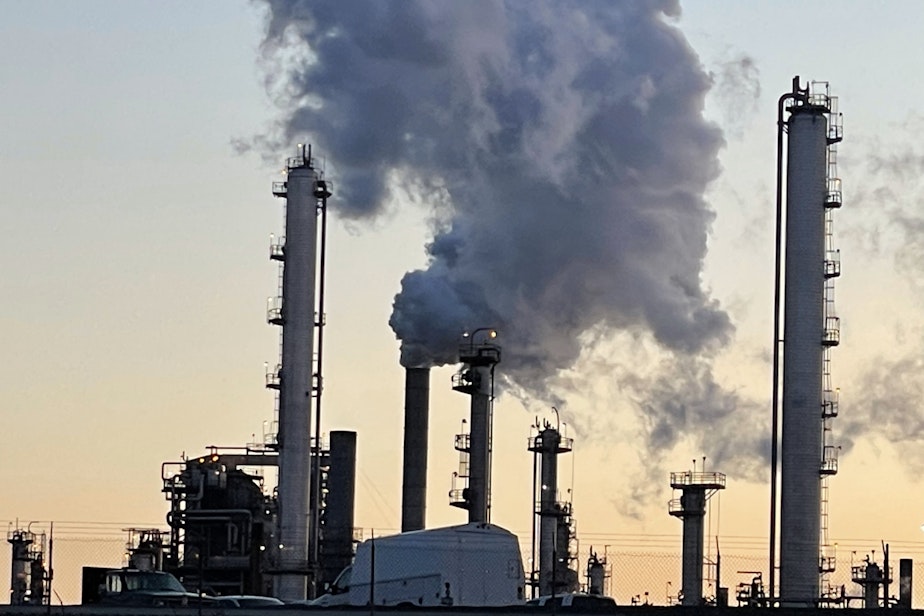Washington holds first carbon auction of 2024, with program's future in doubt

A ballot initiative aiming to stop Washington state from charging for carbon pollution is already reshaping the state’s carbon market.
The state held its first carbon auction of the year on Wednesday.
Uncertainty around the future of the state’s system for capping and making polluters pay for climate-harming pollution has already lowered what polluters and speculators are willing to pay for "carbon allowances."
Those allowances, required to emit large volumes of climate-harming pollution in Washington, are sold at confidential state auctions four times a year. In 2023, companies and organizations paid $2.2 billion for the right to keep polluting the climate.
RELATED: The future of Washington state's carbon auction may come down to gas prices
Since November, prices for those allowances, which can be traded by investors after being auctioned off by the state, have fallen from about $56 per metric ton of carbon dioxide to $35 a ton, according to Texas financial firm AEGIS Hedging.
“Washington State Ballot Initiative 2117 is having a significant impact on [Washington carbon allowance] pricing and will continue to impact the market through November,” according to an analysis by California-based energy-analytics firm cCarbon.
“Investors and smaller compliance entities are likely to avoid the [Mar. 6] auction due to the high risks,” cCarbon analyst Gabriel Stoltzfus wrote.
Lower auction prices on Wednesday would mean lower business expenses as well as less funding for various state programs aimed at reducing climate-harming emissions and helping communities adapt to extreme heat, flooding, and other climate-fueled disasters.
Initiative 2117 would repeal the 2021 law that created the state’s “cap-and-invest” program and prohibit any similar programs from being implemented in the future.
RELATED: Republicans, Democrats, carbon, and you: Debating Washington's cap and trade
Supporters of the carbon cap have reported raising just over $1 million, almost all of it from Tableau Software co-founder Chris Stolte of Seattle, to defeat Initiative 2117.
The main backer of the initiative, Redmond, Washington, hedge fund manager Brian Heywood, has donated more than $6 million to put it and five other initiatives on the November 2024 ballot.
Washington Gov. Jay Inslee and other backers of the state’s system for making polluters pay have been drawing attention to where the auction money goes, from electric buses and improved transit service to urban tree planting.
Opponents focus on the how much the auctions have raised the price of gasoline, they say about 45 cents a gallon.
On Tuesday, former Washington State Department of Transportation economist Scott Smith filed a whistleblower complaint in Thurston County Superior Court after, Smith said, he was fired after refusing to suppress his finding that the carbon auctions would add 40 to 50 cents to the retail price of a gallon of gasoline in Washington.
Gov. Inslee had predicted consumers would see a cost increase of “pennies.” He has blamed oil-industry profits as a cause of high gas prices in 2023.
RELATED: Inslee touts carbon cap, heat pumps at United Nations
The Inslee administration says its proposal to merge Washington’s carbon market with California’s would lower the cost of carbon allowances.
The Washington Department of Ecology will release the results of the March 6 carbon auction on March 13.




